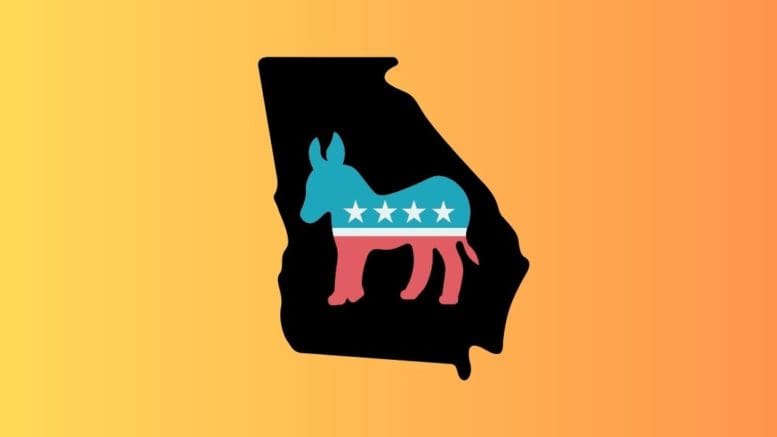by Stanley Dunlap, Georgia Recorder [This article first appeared in the Georgia Recorder, republished with permission]
June 26, 2023
A historic broadband investment has been secured for Georgia broadband expansion as part of $42 billion awarded by the Biden administration to boost internet access nationwide.
Several members of Georgia’s congressional delegation announced Monday that the state will receive a $1.3 billion grant through a broadband program created by the bipartisan 2021 infrastructure law. On Monday, U.S. Sen. Raphael Warnock and U.S. Rep. Lucy McBath were among the Georgia Democrats who lauded the hefty investment as a significant step toward providing more affordable, reliable high-speed internet access to thousands of Georgians.
Through the infrastructure law and the American Rescue Plan, over the last year the Biden administration allocated $90 billion to improve internet service to millions of Americans. This includes the $42 billion grant from the Broadband Equity, Access, and Deployment program to build thousands of miles of fiber-optic cables and provide a $30 monthly discount on internet bills for economically disadvantaged families.
The broadband announcement kicks off a three-week national tour during which officials will promote investments made during Biden’s presidency.
“Today, 24 million people in our country do not have access to high-speed internet, either because they cannot afford the monthly cost of a plan or because they live in communities that have not yet been fully connected to fiber-optic networks,” Vice President Kamala Harris said Monday. “But let us agree: In the 21st century, in America, high-speed internet is not a luxury; it is a necessity. Every person in our nation, no matter where they live, should be able to access and afford high-speed internet.”
The $1.3 billion broadband investment is the latest round of funding as Georgia Democratic and Republican officials have pushed to bridge the digital divide between rural and urban communities as well as residents who cannot afford faster Wi-Fi connections.
On Monday, Warnock said he heard firsthand from Jackson County residents last year about internet problems such as frequent disconnections and limited service providers. He said accurate broadband mapping was important to get the most federal funding possible for Georgia.
“This federal investment means life gets easier for hundreds of thousands of Georgians, and provides the tools and infrastructure our communities need to be competitive in the 21st century,” Warnock said.
A Washington-D.C. think tank report on broadband equity referenced a 2022 survey of 1,543 adults living in the rural South that found that generally lower-income rural residents expected federal intervention to accelerate broadband deployment.
A Brookings Institute October report urged government officials to make sure that broadband programs are targeted to help individuals who live primarily in rural areas as well as groups most vulnerable to inadequate internet access, including Blacks, Hispanics, seniors, veterans, and disabled individuals.
The expansion of Georgia’s internet capabilities is critical to the economic success of small businesses, educating young people, and promoting equity, said McBath, who represents a 7th District that includes parts of Gwinnett and Fulton counties.
“Families across Georgia rely on access to broadband for their jobs, their schoolwork, and keeping in touch with loved ones,” she said. “I’m thrilled to see these federal funds come home to Georgia.”
Since last year, nearly $650 million in grants from the American Rescue Plan Act coupled with several hundred million dollars of matching funds were aimed at improving broadband service for roughly 200,000 underserved Georgia residents.
Republican Gov. Brian Kemp announced in January that $234 million had been awarded to internet service providers, including EMCs, large telecommunications companies, and Georgia businesses to improve connectivity in 28 counties.
Access to technology has increased for most Americans, regardless of their socioeconomic status, the Brookings’ report authors said, but barriers remain.
According to the 2019 American Community Survey, rural poverty rates were at 15.4% compared to urban poverty rates of 12%. Meanwhile, racial minorities living in rural areas experienced much steeper income disparities than rural whites.
“The global pandemic surfaced both the importance and availability of online connectivity as millions obliged the calls for physical social distancing and transitioned online for remote work, school, health care, government services, and regular communications with friends and family members,” the Brookings report said. “Yet, millions of other people still struggle with sustaining consistent access to broadband internet, especially low-income and rural populations.”
Bidenomics’ touted
Connecting Americans to high-speed internet is a “key part” of “Bidenomics” — Biden’s plan that “is rooted in the simple idea that we need to grow the economy from the middle out and the bottom up — not the top down,” according to a memo the administration released Monday.
During his remarks on broadband funding, Biden highlighted recent employment numbers and big-ticket private investment in areas like semiconductor manufacturing — a nod to the CHIPS and Science Act he signed into law in 2022 that provided subsidies for the industry — as proof of his administration’s recent economic success.
The money will first be prioritized to install and upgrade broadband networks, according to the White House. Once those goals are met, remaining funds can be used for “access-, adoption- and equity-related uses.”
The Department of Commerce’s National Telecommunications and Information Administration will administer the grants to all 50 states, as well as the District of Columbia and five U.S. territories. The funding comes from the Broadband Equity, Access and Deployment program established under the Infrastructure Investment and Jobs Act.
States and territories are expected to receive a formal notice of allocated funds by June 30.
States, internet providers, tribal governments and community organizations will then have 180 days to submit grant proposals. The various grants are detailed at InternetForAll.gov.
States Newsroom reporter Ashley Murray contributed to this report
Georgia Recorder is part of States Newsroom, a network of news bureaus supported by grants and a coalition of donors as a 501c(3) public charity. Georgia Recorder maintains editorial independence. Contact Editor John McCosh for questions: info@georgiarecorder.com. Follow Georgia Recorder on Facebook and Twitter.



